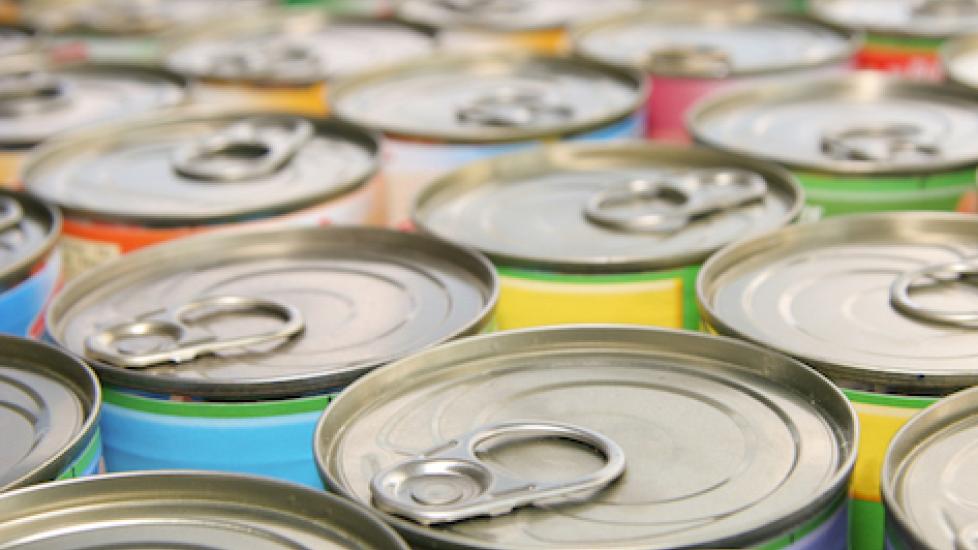6 Tips for Feeding Your Pet During a Disaster
By Carol McCarthy
Hurricanes, floods, earthquakes, house fires…scarcely a week goes by without news of a disaster, natural or manmade, upsetting the lives of countless families. And four-legged family members are in no way immune to the upheaval. It is smart to prepare emergency supplies before a disaster hits. That way, if you must evacuate or shelter in place, you can ensure your animal’s dietary needs are met.
Pack Plenty of Food and Water
Depending on pet type and size, the amount of food you should have available will vary, but it’s always wise to have several cans of wet food or a big bag of dry food on hand, advises Wanda Merling, deputy director of operations for the Humane Society’s animal rescue team. “We recommend that you have between five and seven days of food and water for each one of your animals,” Merling says.
Tammy Loughlin, director of the Westerly Animal Shelter in Westerly, Rhode Island, suggests keeping a one- to two-week supply of food and water on hand. In most cases, this is sufficient for a major hurricane or other natural disaster. Westerly, a coastal town, was hard hit by Hurricane Sandy in 2012, so residents and officials know firsthand the lengthy disruption that a natural disaster can cause.
When it comes to water, you can never have too much, our experts agree. Merling keeps the same amount of water on hand for her 100-pound dogs as she does for each of her family members (about 1 gallon per person or pet, per day). For small animals, a bottle of water or two per day should suffice. (As a rule of thumb, dogs should drink approximately 1 ounce of water per pound of body weight per day, while cats require relatively less, especially if they eat canned food.)
Ensure the Food Is Fresh
“You should check the expiration date of the products you are placing in your emergency kit prior to filling it. Canned food usually is good for at least six months, while dry food probably should be replaced every three months or so,” Loughlin says. “Be sure to date the items so you know exactly when you are replacing with new food.”
Merling recommends always keeping an extra bag of dry food on hand and rotating it into your daily feedings. That way, the “extra” bag gets used and does not have a chance to go bad. The same holds true for canned food. With smaller pets, you can set aside resealable plastic bags of food so you can grab them quickly in an emergency, she suggests.
An easy way to remember to check expiration dates of supplies in your emergency kit is to swap out food twice a year, when daylight saving time begins and ends, just as you would change the batteries in your smoke detectors, she says.
Remember Treats and Dental Chews
Keep a stash of all items that you regularly feed your dog, Merling says. “Bring what you would normally give them every day,” she says. “They already are going to be stressed, and if their routine is broken, that will add to their stress.”
Treats can be helpful in calming your pet or luring him into a pet carrier quickly if need be, she notes.
Don’t Forget Bowls and a Can Opener
In addition to plenty of fresh food and water, be sure to have a can opener if you feed your pets wet food, as well as bowls and paper towels to clean them. Merling recommends either stainless steel bowls, which are easy to clean, or collapsible bowls for easy packing.
Create a list of things you need ahead of time, pack them, and then check the bag to make sure it is easy to tote and not too heavy, she suggests.
Have a Backup Plan
If you run out of pet food, you can substitute it with canned people food, such as chicken, salmon, and veggies, or bland foods, Loughlin says. Avoid spicy foods and items that have a short shelf life, such as fruit, she advises.
While cats will be happy to have canned tuna, and dogs will enjoy canned chicken, Merling warns that such a scenario can create problems. “Human food is likely going to upset their stomach, so you want to avoid that if at all possible,” she says, as a sick pet is the last thing a family needs in the middle of a disaster.
In any case, Merling and Loughlin stress keeping a list of foods that can be toxic to pets (e.g., grapes, onions) in your emergency kit, so you can avoid any mishaps.
Be Prepared for Small-Scale Disasters, Too
Merling, who rehearses emergency evacuations with her family twice a year, recommends that families also prepare for personal tragedies, such as house fires. Such events occur with more frequency and are just as dangerous to people and pets as large-scale disasters. Have your supplies ready, know where everything is, and practice an evacuation plan so everyone remains safe, no matter the situation, she advises.
